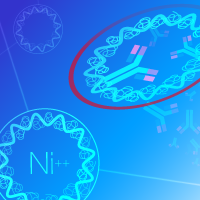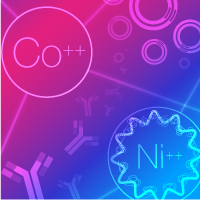Non-tagged protein purification overview
Why purify non-tagged proteins?
Although protein tagging enables simple, effective affinity purification of a wide variety of proteins, there are a number of reasons why it is not necessarily the best method for every protein:
- Tags cannot be used to purify endogenous proteins; they can only be used to purify proteins that have been genetically manipulated, which may not be possible or desirable
- In some cases, a tag may interfere with the structure or biological activity of a target protein, or may be difficult to remove without altering its structure or function
- Protein tagging may be unnecessary for proteins with endogenous post-translational modifications or affinity binding sites, such as phosphoproteins, glycoproteins, or antibodies, which can bind specifically to alternative affinity resins
Applications
Phosphoprotein enrichment
Phosphoprotein enrichment with a unique IMAC (immobilized metal affinity chromatography) resin provides an effective affinity-based procedure for isolating phosphorylated proteins from mammalian cells and tissues, using gravity columns or magnetic beads. A similar IMAC resin-based method is available for isolating phosphopeptides, using spin columns or magnetic beads.
- Phosphoproteins isolated using gravity columns are ideal for use in many downstream applications, including mass spectrometry and 2D-PAGE
- Spin column enrichment can enhance HPLC or mass spectroscopy detection of phosphopeptides that would otherwise be undetectable
- Magnetic beads provide microscale phosphoprotein or phosphopeptide enrichment
Glycoprotein enrichment
Glycoprotein enrichment with a boronic acid-based resin provides quick, efficient, and specific enrichment of glycoproteins from complex samples such as human serum, urine, and spinal fluid, using either simple gravity-flow columns or medium-pressure methods such as FPLC. The resin may be used to:
- Specifically enrich low-abundance glycoproteins and reduce sample complexity to facilitate proteomics studies and downstream analysis using mass spectroscopy
- Remove saline contaminants that can interfere with ionization in mass spectroscopy
Antibody purification
Antibody purification with a thiophilic resin is a simple, powerful, and economical alternative to Protein A purification. The resin may be used to purify:
- Common immunoglobulins, including IgG, IgM, IgA, Fab and Fc fragments, and C3 and C4 complement factors
- Single-chain antibodies (e.g., IgE, IgY, and IgM), which cannot be purified using Protein A

Capturem technology
There is a constant need for faster, more efficient antibody and protein purification processes at any scale. Capturem membrane technology allows for purification directly from complex matrices, such as cell supernatants, in minutes. This technology also provides highly purified and concentrated antibodies and his-tagged proteins, even from samples containing additives not compatible with other purification technologies.
Antibody purification His-tagged purificationTakara Bio USA, Inc.
United States/Canada: +1.800.662.2566 • Asia Pacific: +1.650.919.7300 • Europe: +33.(0)1.3904.6880 • Japan: +81.(0)77.565.6999
FOR RESEARCH USE ONLY. NOT FOR USE IN DIAGNOSTIC PROCEDURES. © 2025 Takara Bio Inc. All Rights Reserved. All trademarks are the property of Takara Bio Inc. or its affiliate(s) in the U.S. and/or other countries or their respective owners. Certain trademarks may not be registered in all jurisdictions. Additional product, intellectual property, and restricted use information is available at takarabio.com.




